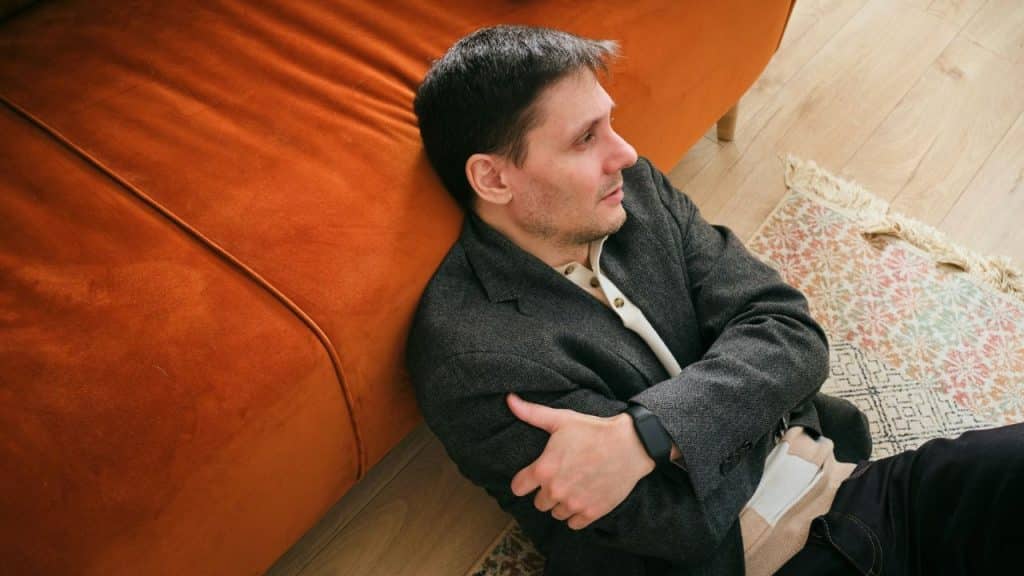
Ever opened up about something raw, only to hear it thrown back in a fight weeks later? That’s the kind of gut-punch that makes men shut down for good. You want connection, but your brain says, “Careful, this will be used against you.” So you bottle it, nod along, and carry it alone. The truth is, you’re not broken for doing this. You’re protecting yourself. Let’s talk about why so many men guard their hearts like Fort Knox.
Fear of future emotional ammunition

One honest confession can turn into a loaded weapon in the next argument. You admit a mistake or fear, and suddenly it’s Exhibit A in a heated debate months later. That kind of ambush sticks with you. No man wants to relive his lowest moment just to lose a fight he didn’t even start. So you stop feeding the arsenal.
Perceived weakness in relationship dynamics

For some men, showing too much vulnerability feels like handing over power. It shifts the balance, and you’re no longer the strong one; you’re the “fragile” one. Even if your wife doesn’t mean it that way, the dynamic changes in your head. Respect matters, and anything that threatens it feels dangerous. That’s why many men choose silence over exposure.
Triggering past betrayals or arguments

If past arguments turned ugly when you shared too much, your guard shoots up fast. Old wounds don’t heal quickly, and a partner rehashing them makes them sting even worse. The brain learns: don’t go there again. Guardedness becomes less about stubbornness and more about survival.
Cultural push toward stoicism and self-reliance

From childhood, men are told to “man up” and keep emotions under wraps. That conditioning doesn’t disappear when you get married. Instead, it hardens into an armor you wear daily. It feels safer to fix the sink than to admit you’re drowning inside.
Fear of misinterpretation or exaggeration

You say, “I feel overlooked,” and it becomes, “You think I never care about you.” What started as honesty gets blown out of proportion. When every sentence feels like a trap, silence feels like freedom. Misinterpretation teaches you to keep your words locked up.
Concern about losing authority or respect

Respect is oxygen in a marriage, and many men fear suffocating without it. Opening up about doubts or insecurities feels like tearing down the strong image you’ve built. Once that picture cracks, will she still look at you the same? To avoid the risk, you stick to what feels safe: strength, confidence, and control.
Not wanting to burden their partner

You already carry the weight of the world, so why dump more on her plate? Sharing might feel selfish, especially if she’s already stressed. Instead of connection, you fear causing worry or frustration. So you swallow it, convincing yourself you’re protecting her, even if it’s eating you alive.
Perceived inability to “take it back” once said

Words can’t be unsaid. Once you reveal that fear, regret, or mistake, it lives out loud forever. That permanence feels risky, like handing someone the keys to your vault. If you can’t control how it’s remembered or repeated, better not to say it at all.
Lack of emotional vocabulary

Many men struggle to find the words to express their feelings. Trying to explain it feels clumsy, like fumbling in the dark. And when you can’t say it right, it feels easier not to say it at all. The silence isn’t apathy—it’s frustration!
Fear of confrontation escalation

Sometimes you just want to talk, but it spirals into a full-blown argument. What started as “I feel tired” somehow explodes into “You don’t care about me.” That whiplash makes men retreat. Avoiding emotional talk becomes the simplest way to avoid conflict altogether.
Underlying guilt or shame (self-judgment)

Some feelings come with shame attached: anger, jealousy, fear. You judge yourself for even having them. Why pile on the shame of someone else’s judgment, too? The inner critic keeps you locked down before you ever say a word.
Mismatched communication styles

Maybe you’re straight to the point, and she wants to circle the block five times before landing. Or you vent and she jumps into fix-it mode. That mismatch makes both of you feel unseen. Eventually, silence feels easier than speaking two different languages.
Avoiding “emotional debt” in the relationship

Opening up can feel like handing over a tab you’re not sure will ever get paid back. If you share but never get anything in return, it creates imbalance. Men don’t want to feel like the only ones vulnerable while their partner stays guarded. So you stop handing over the currency of trust.
Past dismissal or minimization of feelings

“Don’t be dramatic.” “You’re overthinking.” Even small brush-offs leave scars. Once your feelings are dismissed, it’s harder to risk putting them back on the table. You’d rather stay silent than feel stupid for caring.
Fear of future leverage (like divorce or separation)

In messy breakups, words are twisted into knives. Men who’ve seen it happen—or lived it—know how dangerous vulnerability can be. What you confess in trust today could end up on paper tomorrow. That fear keeps your lips sealed.
Belief that solutions—not emotions—are expected

You’re wired to fix problems, not sit in them. Discussing feelings can feel pointless when no solution is in sight. Why drag it out when you could just solve it? That mindset keeps emotions bottled up in the name of productivity.
Stress from social comparison

Look around, and it seems like other men aren’t spilling their guts either. That silent comparison convinces you it’s not “normal” to open up. So you play the part and keep quiet, even when it hurts.
Emotional fatigue or burnout

Carrying your emotions without release is exhausting. However, talking can feel just as tiring when it leads to conflict or misunderstanding. After a while, you shut down simply because you’re too drained to try again.
Self-protection from emotional exposure

At the end of the day, it comes down to survival. Exposing your inner world feels like opening yourself to attack. Guarding it keeps you safe. It’s not about being cold—it’s about self-preservation.
Protecting the image of competence and control

Men pride themselves on being steady and dependable. Letting emotions spill can feel like cracking that image. You want to be seen as competent, not chaotic. So you hold the line, even if it means carrying more than you should.






Ask Me Anything